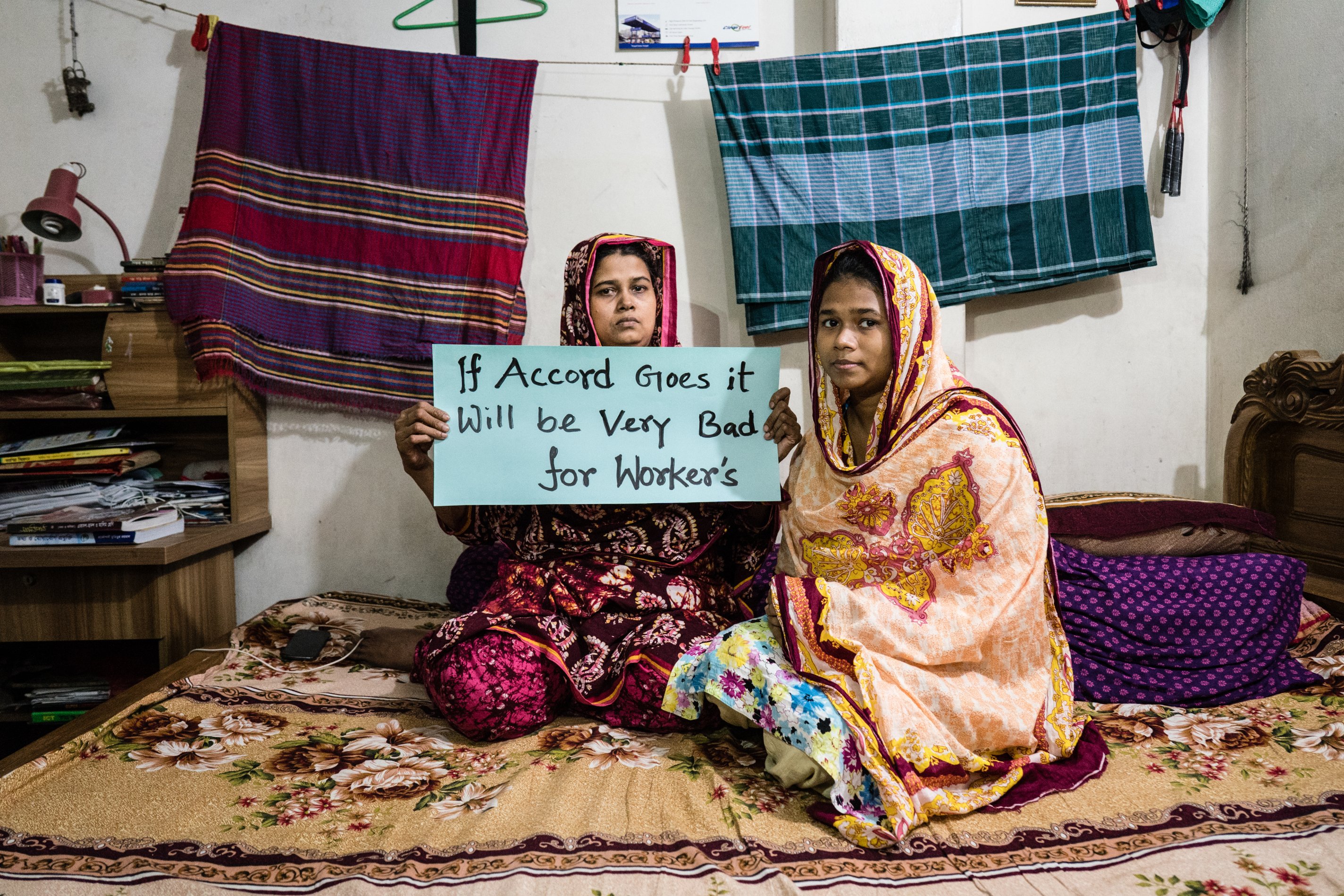
Government of Bangladesh not ready to take over Accord’s safety work
The government of Bangladesh is using proceedings before the Supreme Court of Bangladesh to prevent the Accord on Fire and Building Safety, the safety programme established in the aftermath ofthe Rana Plaza collapse, from operating, thereby putting workers’ safety at risk.
The government of Bangladesh is using proceedings before the Supreme Court of Bangladesh to prevent the Accord on Fire and Building Safety, the safety programme established in the aftermath of the Rana Plaza collapse, from operating, thereby putting workers’ safety at risk.
The government’s justification for trying to end the Accord’s work depends entirely on its claim that the government is ready to assume responsibility for the 1,688 factories under the Accord’s purview, but research published today by the Accord’s NGO witness signatories – Clean Clothes Campaign, International Labor Rights Forum, Maquila Solidarity Network, and Worker Rights Consortium – shows a shocking level of unreadiness, as also reported in the Guardian yesterday. In particular, we find that:
- The two government-run databases intended to provide information on the remediation of garment factories are inconsistent and fail to provide information on follow-up inspections.
- Each of the 745 factories under the government’s inspection programme have yet to eliminate high risk safety hazards, all of which were identified between three and five years ago. High risk hazards include, for example, lockable exit ways which, in the event of a fire, could leave workers trapped inside. Many high risk hazards should – and could – have been eliminated immediately after being identified.
- The government has the power to shut down factories that are deemed so dangerous that workers’ immediate safety is at risk. As is widely recognized, had the government utilized this power when cracks at Rana Plaza were identified to them just days before the collapse in 2013, thousands of lives would have been saved. The Accord identified 114 such critically unsafe factories, which it subsequently terminated from its inspection program. Today, half of these same facilities remain open under the government’s inspection program. There is no indication in the government’s own records that any safety improvements have been made to these factories.
- The government claims to have received 18 complaints through its complaint mechanism since 2013. The Accord, on the other hand, received 1,152 complaints in that same time period. The stark difference in the use of each complaint mechanism could be attributed, in part, to the fact that the government does not guarantee workers anonymity when they file complaints through its mechanism.
- In multiple public forums, the government has stated that 29% of all required renovations at the factories under its purview have been completed. A closer look at the government’s own data proves that this is a gross overstatement of the facts. 346 of the 400 factories (for which there is available information) have completed less than 20% of all required safety renovations. Only two factories have completed between 21 and 40% of remediation. There is no information on the remaining 52 factories. By contrast, 89% of renovations required at all factories covered by the Accord have been completed.
Both the brand and labour signatories of the 2018 Transition Accord are committed to transfer the inspection and remediation work once a credible national regulatory agency is in place. Currently, international stakeholders across the board agree that Bangladesh’s national inspection agencies do not yet meet the expected standard when it comes to transparency, monitoring, or enforcement. The government’s inspection agencies lag far behind in completing the remediation work at garment factories producing for non-Accord brands, or for the domestic market. The government of Bangladesh, however, is asserting that its inspection bodies are ready to take over the work and the Accord is no longer needed and is pushing for a swift transfer of not only the inspection and remediation work, but also of the safety complaints process and the safety training programmes carried out by the Accord and has refused to discuss a conditional process based on an evaluation of readiness criteria.
Signatory brands are speaking up not to transition any tasks from the Accord to national inspection agencies until it is fully clear that the latter are up for the task. Clean Clothes Campaign is collecting these statements on behalf of all witness signatories here.